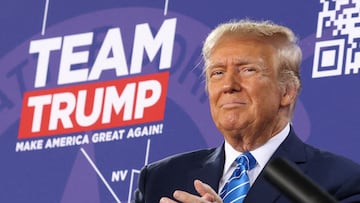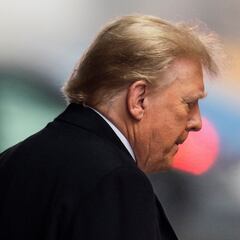What is presidential immunity? Does anyone have absolute immunity in the US?
The legal defeat for Donald Trump has people asking what the checks and balances are on the elected officials in the country.


Presidential immunity refers to the legal protection granted to the President of the United States from certain legal actions, such as civil lawsuits or criminal prosecutions, while they are in office. This immunity is based on the idea that the President should be able to fulfill their duties without undue distraction or harassment from legal proceedings. Until this year no court had actually made a ruling on the matter of criminal immunity and nothing in the constitution grants them special protection.
There are limitations to this immunity, particularly in cases involving actions taken outside the scope of the President’s official duties or before assuming office. For example, a President can still be subject to legal action for actions taken prior to taking office or actions that are unrelated to their official duties. This is what the appeals court ruled in Donald Trump’s case on Tuesday.
“We cannot accept former President Trump’s claim that a president has unbounded authority to commit crimes that would neutralise the most fundamental check on executive power - the recognition and implementation of election results,” the three-judge appeals court panel wrote in its opinion.
BREAKING: Donald Trump is *NOT* immune from prosecution, DC Circuit rules.
— Kyle Cheney (@kyledcheney) February 6, 2024
Details TK pic.twitter.com/U0rgc5kNXd
Trump is the first former president to be indicted for any crime. However, his case is not over yet. If an appeal is filed before the deadline on 12 February, then the ruling on the extent of his presidential immunity will likely head to the Supreme Court. It is unknown whether the hearing for this could be held before the presidential election later this year, of which Trump is expected to be the Republican candidate.
Does anyone have absolute immunity in the US?
There is nothing written in the constitution that conveys immunity from all crimes upon any American, it is an ongoing matter for courts to decide.
Related stories
Various government officials do have different levels of immunity depending on their role and the nature of the legal action. Cabinet officials have been granted absolute immunity for actions “more or less” within the scope of their duties as per two rulings from 1896 and 1959.
Others have qualified immunity, which shields them from civil liability for actions taken in their official capacity as long as those actions did not violate clearly established law or constitutional rights, such as presidents and legal representatives.

